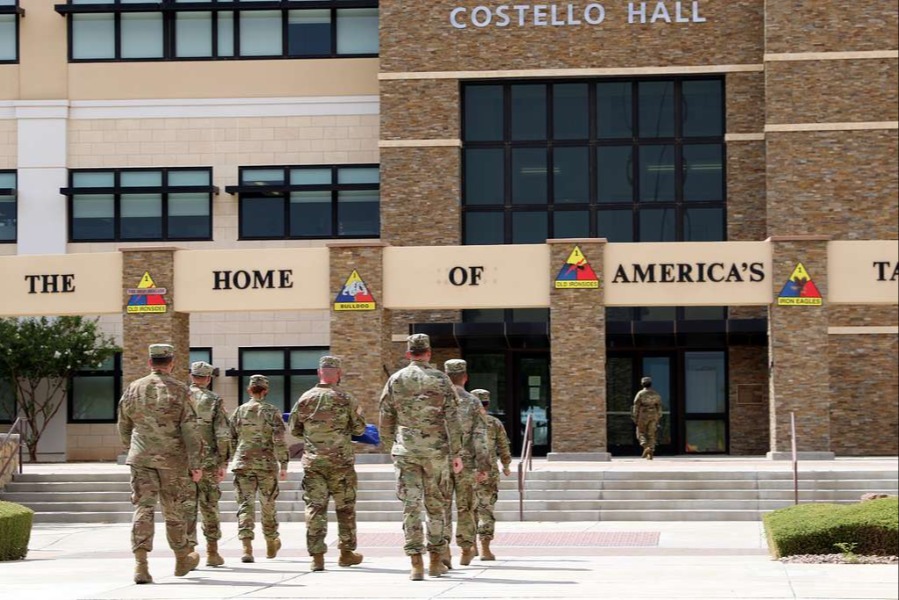Today's Headlines and Commentary
Violence continues in Syria as Russia and the United States trade blows over who is to blame. The Syrian government has launched a renewed assault on Aleppo, killing hundreds of civilians trapped in the besieged city since the collapse of the U.S.-Russia brokered ceasefire last week.
Published by The Lawfare Institute
in Cooperation With

Violence continues in Syria as Russia and the United States trade blows over who is to blame. The Syrian government has launched a renewed assault on Aleppo, killing hundreds of civilians trapped in the besieged city since the collapse of the U.S.-Russia brokered ceasefire last week. The Wall Street Journal reports that the regime’s attacks include the use of bunker buster bombs that have devastated the rebel-held portion of the city, along with cluster, barrel, and phosphorus bombs. According to the Syrian Observatory for Human Rights, dozens of airstrikes targeted rebel-held areas of the city on Sunday night into Monday morning in an unusually intense assault.
U.S. Ambassador to the United Nations Samantha Power accused Russia of “barbarism” in an emergency meeting of the U.N. Security Council convened in response to the assault on Sunday, while the U.K.’s ambassador declared that “it is difficult to deny that Russia is partnering with the Syrian regime to carry out war crimes.” Russian ambassador Vitaly Churkin claimed that Syrian forces had displayed “admirable restraint” and blamed the United States for failing to control the behavior of the rebels.
The New York Times argues that Syrian President Bashar al-Assad’s tactics in Aleppo represent an effort to “make life intolerable and death likely” and “kill whoever stays” in the devastated city—what pro-government militias have called “starve-or-submit” tactics, which the regime has used successfully in Homs and Damascus. It appears increasingly obvious that the Syrian regime is ready and willing to push Aleppo to the limit in order to reclaim control over the city.
The AP takes a look at the run-up to the decisive battle for Mosul, which is set to begin in earnest in a few months. Capturing Mosul from ISIS will be far from easy, but the difficulties will not stop there: civilians fleeing Mosul will likely add to the ongoing humanitarian crisis in the area, and the shaky alliance between the Iraqi army, Shiite militias, Sunni Arab tribes, Kurdish troops—not to mention U.S. special forces—will be tested as Sunnis, Shiites and Kurds vie for political power in a post-ISIS Iraq.
In a clash along the border of Yemen and Saudi Arabia on Thursday, Saudi-led coalition forces killed the head of special forces for the Houthi rebel movement, Reuters tells us. Meanwhile, a top Houthi official proposed a deal with Saudi forces on Sunday that would require the kingdom to cease airstrikes and lift its near-blockade of Yemeni ports in exchange for an end to Houthi attacks on Saudi Arabia and amnesty for anti-Houthi Yemeni fighters. Saudi Arabia has previously indicated its unwillingness to negotiate with Houthi forces.
A prominent Jordanian writer was shot and killed on Sunday as he arrived at court to face criminal charges for insulting Islam after posting a cartoon online that some found provocative. The Times reports on the murder of Nahed Hattar, whose death has forced Jordan to grapple with long-simmering political and religious tensions and the presence of militant Islamism within the kingdom.
The Washington Post examines the uncertain future of Afghan refugees in Pakistan. The Pakistani government has given all 1.5 million registered refugees six months to leave the country and return to a homeland still troubled by violence.
Three Turkish soldiers were killed and eight wounded in the bombing of a bus carrying military personnel in southeast Turkey on Monday, Reuters writes. No group has claimed responsibility, but PKK involvement is suspected.
The Post tells us that German public broadcaster Deutsche Welle is now suing the Turkish government after authorities confiscated footage of a Deutsche Welle interview with a Turkish official and prevented the interview from airing. The broadcaster is now seeking the return of the footage in a lawsuit that may further strain relations between Turkey and Germany, which have already been made tense by disagreement over how to handle the migration crisis and the failed coup in Turkey, among other issues.
American and British diplomats have been meeting with Libyan militia leaders in an effort to restore the country’s oil shipments, the Wall Street Journal reports. The U.S. and U.K. hope that an increased flow of oil will increase Libya’s ability to counter the Islamic State’s presence within the embattled country. But the resulting spike in Libyan oil sales may cause problems with other members of OPEC, who are seeking to slow oil production to curb a glut.
After boat carrying roughly 450 Egyptian migrants sank in the Mediterranean last week, Egyptian authorities have now recovered 162 bodies out of an estimated 300 dead. The Times writes that the disaster reflects both the economic hardship faced by many in Egypt, where many young men are choosing to make a break for Europe rather than remain at home, and the extent to which migrants to Europe are now choosing to depart from Egypt rather than Libya as the Libyan route reaches capacity.
The French government has committed to closing the Calais migrant camp by the end of the year, the BBC tells us. President Francois Hollande called on the United Kingdom to “play its part” in closing the camp, saying that the vote to leave the European Union did not “absolve … [the U.K.] from its obligations to France.” The camp, known as “the Jungle,” has become notorious for its vast size and poor conditions, which have only worsened as the migration crisis drags on. The Times has more.
Two teenagers suspected of planning a terrorist attack have been detained in Nice, France, according to the Wall Street Journal. The two young women appear to have been in contact with Rachid Kassim, a French ISIS member suspected of coordinating multiple attacks within France over the past several months. Meanwhile, German police arrested a young man on Saturday on suspicion of membership in ISIS.
After a bomb wounded two Hungarian police officers on Saturday, Hungarian authorities have embarked on a manhunt to find the perpetrator, though the search remains inconclusive. No group or individual has claimed responsibility and there is no evidence to indicate that the bomb was an act of terrorism. Nevertheless, the attack is one more in a series of violent incidents that have left Europe on edge in recent months, the Post writes.
The United States also struggled with violence over the weekend as five people died in a shooting at a mall near Seattle, Washington. The Times reports that the shooter, who was taken into custody, appears to be a Turkish immigrant and a legal permanent resident of the United States. Few other details have emerged about the attack.
The Times examines the surprisingly complicated question of legal representation for Ahmed Khan Rahami, the suspect accused of organizing the bombings in New York City and New Jersey two weeks ago. A New Jersey public defender claims that a state prosecutor prevented him from meeting with Rahami, and it is still unclear whether the public defender has been successfully assigned to Rahami’s case. Notably, it appears that officials did not invoke the public safety exception to delay Mirandizing Rahami.
The Times also takes a closer look at Rahami’s life leading up to the bombing as a “disaffected first-generation immigrant, straddling two worlds and unable to fit into either”—a story strangely evocative of the Boston bomber, Dzhokhar Tsarnaev.
Philippine President Rodrigo Duterte’s recent truculence toward the United States and apparent efforts to shore up his country’s relations with China may have changed Beijing’s calculus in the South China Sea. Facing the prospect of a less hostile Philippines, China appears to have postponed its plans to build an artificial island on the disputed Scarborough Shoal near Philippine waters. An international tribunal recently ruled in favor of the Philippines against Chinese claims in the South China Sea, though Beijing has so far ignored the decision.
But while the Philippines may have changed its tune towards China, Japan shows no signs of doing so any time soon. The BBC reports that Japan scrambled Chinese fighter jets flying between Japanese islands on Sunday. The jets did not enter Japanese airspace in what Beijing claims was a routine drill.
The United States and South Korea conducted joint naval exercises in the Sea of Japan this Monday, CNN tells us. The drill was the first time that the two allies have conducted naval exercises together so close to the North Korean coast. Tensions have been high in the region following a series of missile tests by the isolated nation.
China is investigating a secret North Korean bank that may be involved in financing the import of materials used for Pyongyang’s illicit nuclear program, the AP reports. Though Beijing is one of Pyongyang’s few friends in the international sphere, Chinese authorities have recently indicated an increased willingness to discipline the North Korean regime for its nuclear activity. Reuters takes a look at the fraying patience of North Korea’s allies, who have grown frustrated with dealing with Pyongyang.
The AP also tells us that North Korea appears to intend to hold two U.S. citizens as “prisoners of war” until after the U.S. presidential election. Pyongyang may hope that the detainees will have the highest value as bargaining chips after a new administration enters into power.
Mexico has seen an upturn in violence after three years of relative safety, the Journal reports. Violent crime—much of which the Mexican government has linked drug cartels—has returned to levels previously seen only in 2011, at the height of the drug war.
Boko Haram’s onetime leader Abubakar Shekau has resurfaced once again, according to Reuters. The Nigerian military claimed to have seriously injured Shekau last month in an attack on the militant group. But now, in what is becoming a pattern, a man claiming to be Shekau has appeared in a video mocking the government for mistakenly claiming to have taken him off the field of battle.
ICYMI: This Weekend, on Lawfare
Quinta Jurecic posted this week’s Lawfare Podcast, featuring an interview with Judge Laurence Silberman on the birth of the National Security Division of the Justice Department.
In the Foreign Policy Essay, Michael Stephens and Thomas Juneau argued that the United States must maintain its partnership with Saudi Arabia.
Benjamin Wittes shared seven questions on national security and executive power that he would like to see Donald Trump asked in tonight’s presidential debate.
Email the Roundup Team noteworthy law and security-related articles to include, and follow us on Twitter and Facebook for additional commentary on these issues. Sign up to receive Lawfare in your inbox. Visit our Events Calendar to learn about upcoming national security events, and check out relevant job openings on our Job Board.





